"Poonashcha Bhooyopi Namo Namaste"
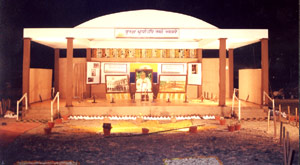
Some time has passed since that fateful day, yet not a single day has gone by without fond remembrance of Dadaji. How can anyone live eternally in this world? The creator lives in his creations. The creation always lives longer than the ephemeral life of the creator. Dadaji resurrected values in human life and made man aware of his divine relation with his fellow man, with nature, and with his Creator. These values and relations will last as long as long as humanity does, which will make Dadaji's life eternal. Normally, the fruits of one's deeds belong to him. But the fruits of Dadaji's deeds will be enjoyed by society for generations to come. Throughout His life, Dadaji worked incessantly for humanity. He had infinite love and enduring patience for mankind.
Dadaji's philosophy is based on absolute trust in God and His presence in every living being on this planet. He rediscovered man and made him realize the indwelling presence of God and his relation with God. He allowed man to value his own dignity due to this indwelling God and to respect others with the understanding that the same divinity is all-pervasive. It is due to Dadaji's efforts that the image of man has been uplifted in the eyes of God.
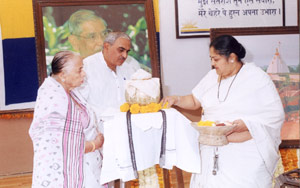
He proved that once the idea of the indwelling presence of God is realized, it resolves many otherwise intractable problems of human development and empowerment. It also removes the barriers of caste, class, creed, language, gender, colour, religion, nationality, etc. that divide humanity, and it brings man closer to man. Dadaji's philosophy allows the individual development of man, on both a spiritual and material plane, becoming an indelible part of the process of social development. The Swadhyay Pariwar of millions spread across five continents is the living and breathing proof of this.
Bhakti (devotion), according to Dadaji, is an attitude, an understanding, and an expression of gratitude to God. It is the strongest urge in a human being. Dadaji nourished and channeled this urge through unfolding major socio-economic experiments that are transforming the lives in societies across the globe. Today, over 600,000 Swadhyayees regularly and selflessly offer their time and efficiency as their devotion to God in these projects, and this number is increasing steadily.
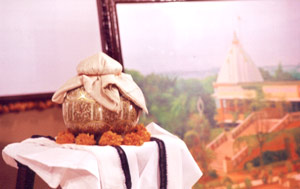
Dadaji not only worked throughout his life, but it seems he continues working even after leaving his body. We never knew when and in what way Dadaji touched them, but people from all walks of life came to pay their last respects to Dadaji. People from all political, religious, social, and economic fields flocked to pay their last respects.
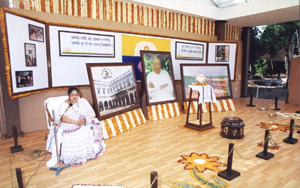
Dadaji's leaving was a critical time for the Swadhyay Pariwar. Swadhyay does not have a structured organization or professional managers. It is a family in the truest sense of the term. Many onlookers in society felt that a shadow of uncertainty loomed over the Pariwar, but the passage of time proved the invisible presence of Dadaji in everything that bloomed in various aspects of Swadhyay activity. Most noticeable were the gatherings of highly motivated women in an astronomical number. Didiji held meetings which were attended in aggregate by nearly 300,000 women. Didiji has also captured the imagination of the youth. She has breathed the air of enthusiasm into them. The international Gita Jayanti Elocution Competition is just one of the vibrant examples of Didiji's efforts in expanding Dadaji's work.
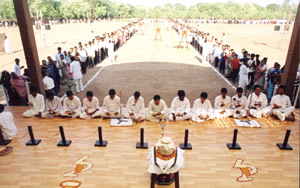
Dadaji always felt that it would require the establishment of at least 10,000 Yogeshwar Krushis, one of the several devotion-based socio-economic experiments, to pave the way for an all-encompassing revolution. 2004 saw the fulfillment of His long-cherished vision, thanks to the untiring efforts of Didiji, who visited all corners of the Swadhyay family and motivated krutisheels.
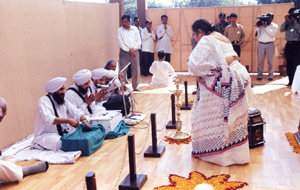
At the critical time of the loss of Dadaji's physical presence, Didiji stood up to the occasion and united the entire Swadhyay Pariwar by making it possible for them to rededicate themselves to the work. The first step in that direction was Didiji's decision to take Dadaji's ashes (Asthi Kalash) to various places. This was appreciated by all as a step in the true spirit of a family. This gave millions a chance to pay their heartfelt homage to Dadaji, and it also brought them a closer to Didiji.
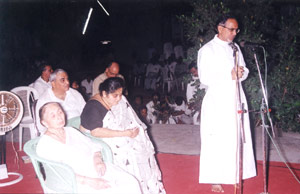
At each location, local community leaders made a point to be present, regardless of their caste, creed, religion or political affiliation. Local and national government officials, along with representatives from the media and general public were present, also.
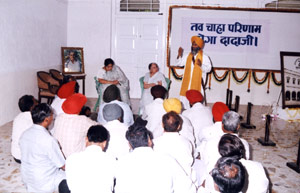
Highlights of few striking events:
- People of all faith came to pay their homage to Rev. Dadaji.
- In California, eighty-three - signifying the number of years of Rev. Dadaji's earthly life - pigeons were set free at the time of Asthi Darshan.
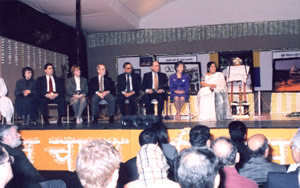
- The State of New Jersey, the City of New York, the District of Columbia, and many other cities declared that particular day as Pandurang Shastri Athavale Day.
- In the U.K. 200 leaders representing more than hundred organizations attended Asthi Darshan.
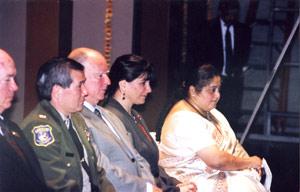
When one thinks of the innumerable facets of Rev. Dadaji, the masterly manner in which he veiled his true being, his magical capacity of connecting with and transforming any and all, his way of turning us onto a radically different path - a path of divinity, the effortless manner by which he transformed our ordinary lives into extraordinary lives - lives with a mission.
Our only response can be the one which Arjun expressed to Lord Shri Krishna. We can do nothing but exclaim:
"Poonashcha Bhooyopi Namo Namaste"!
The Swadhyay Pariwar will always observe the 25th of October as "Ananyah" (The Day to remember the Embodiment of faith in God only, no one else).